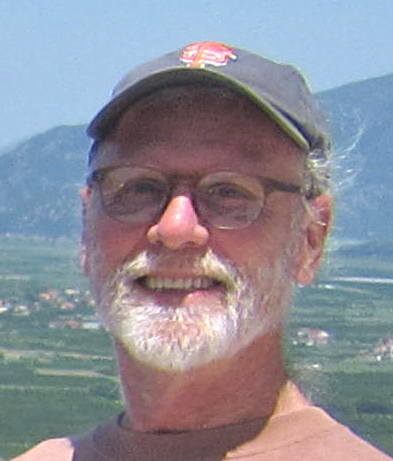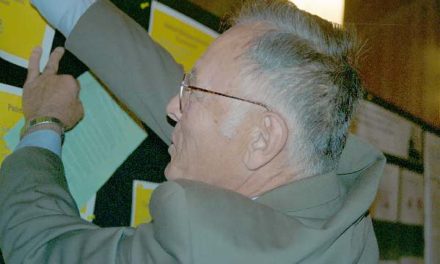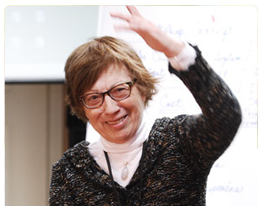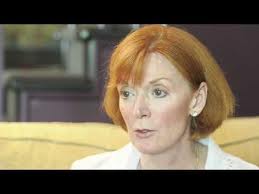March 25, 2015 By Fred Gardner
A spectre is haunting California physicians who have been practicing Cannabis-based Medicine: the likelihood of “legalization” in 2016. The economic viability of their specialty may depend on how the new law is worded.
If legalization involves a steep tax on cannabis sold for recreational use, many people will continue visiting MDs to confirm that their use is medical. This is the situation in Colorado, where a doctor’s authorization letter effectively confers a 25% price break from dispensaries, and cannabis-oriented medical practices are flourishing.
But what if the tax is not steep enough to induce cannabis users to get a doctor’s approval? How many people using the herb to treat common conditions such as pain, depression and anxiety will feel the need to seek annual renewals?
We asked Jeffrey Hergenrather, MD, the president of the Society of Cannabis Clinicians —who is being honored as “medical professional of the year” by Americans for Safe Access— how he sees the future of the specialty.
Hergenrather’s office is in Sebastopol, California, a small city some 60 miles north of San Francisco. His examinations are thorough —each new patient gets an hour and a half— and his expertise is exceptional. Hergenrather, 67, was in Emergency Medicine for 26 years and has never been in any kind of trouble with the medical board. He charges $250 for the initial visit, $120 for recheck visits.
Off the top, he estimates, “Fifty to 90 percent of my patients would not seek renewals if the legal and economic incentives were removed.
“At the same time,” he went on, “the need for many patients to have a cannabis consultant is greater than ever. They have cancer and a whole range of serious illnesses for which cannabis provides relief, but they need guidance in using it. They need a doctor who is going to stay informed about strains, dosage, frequency of administration, methods of administration, and so forth.”
Hergenrather was a founding member of SCC, which was launched 1999 by Tod Mikuriya, MD, the Berkeley-based psychiatrist who drafted the first sentence of the Compassionate Use Act of 1996 (Prop 215), allowing doctors to approve cannabis use by patients for “any…condition for which marijuana provides relief.” Today the group has more than 140 members nationwide.
“‘Cannabis Clinician’ is a valid specialty,” Hergenrather asserts, “although it doesn’t fit in with the conventional categories —Oncologist, Neurologist, Dermatologist, Rheumatologist, Endocrinologist, Obstetrician, and so forth. Cannabis is so widely applicable as a medicine that it cuts across all the professional divisions. And the role of the cannabis consultant is unique.”
The treatment plan Hergenrather provides patients is individualized —“based on the person and their real-life situation —their job, their obligations —like they’ll be picking up the kids at 3 o’clock— everything needs to be considered.”
The availability of CBD-rich cannabis in recent years has been a boon to many in the workforce. “Typically people use CBD tincture in the morning or daytime to stop the anxiety and or reduce the pain without impairing their global ability to multi-task at work. With CBD and THC we’re just scratching the surface of what cannabis-based medicine can be. We’ve hardly touched those other cannabinoids and the terpenes.”
A surprising, unpublicized role of the Cannabis Consultant is directing patients to conventional therapies. The government and the medical establishment have lied for so long about marijuana and so much else that millions of Americans no longer heed their dictates and guidelines —even the sensible ones. “Many patients may need to go on to surgeries,” Hergenrather says. “There are people who come to me with cancers and want to treat it only with cannabis and I have to explain to them, ‘This disease will kill you if you don’t do more.’ That conversation cannot be conducted in five or 10 minutes.”
“A Seat at the Table”
Hergenrather hopes that the SCC will have “a seat at the table” as the California legislature discusses regulations for the medical marijuana industry this year and drug policy reform leaders draft a “legalization” initiative for 2016.
Dale Gieringer, the director of California NORML who was a co-author of Proposition 215, is involved in the drafting process. Although a staunch opponent of drug testing, Gieringer points out, “You can generally pass a drug test if you’re using a legitimately prescribed controlled substance. What if a marijuana recommendation was treated the same as a prescription?”
Asked if such a plank was being considered for the 2016 initiative, Gieringer changed the subject: “The legislature would prefer to make it harder to get a recommendation,” he advised.
Hergenrather notes that there’s another mechanism —besides onerous taxation and drug testing— that could induce people to consult cannabis specialists and make the specialty viable: “a single-payer system that remunerates docs appropriately for the time that they need to spend with patients. We don’t even have to go a single payer system. If we just require our elected officials to appropriately reimburse the primary care doctors in this country! We keep getting undermined in terms of Medicare payments. It drives the doctors away from their practices and into corporate medicine models.
“If we can get cannabis into Schedule Two —even though it will keep the drug war going— it would enable doctors who are not comfortable with it themselves to refer to cannabis specialists. And cannabis specialists should be able to get Medicare payments or other insurance payment for seeing patients. That can’t happen until it’s out of Schedule One… Cannabis really should not be a scheduled drug.”
In response to rising interest by physicians across the U.S. —who learned nothing about the body’s cannabinoid signaling system in medical school and are realizing that many of their patients are using marijuana beneficially— SCC’s Education Committee has produced what chairperson Deborah Malka, MD, calls, “the first online Clinical Cannabinoid Medicine Curriculum.”
The 12 modules put together by course editor Stacey Kerr, MD, “take clinicians from the fundamentals of the underlying physiologic system to the pharmacology and clinical practice of medical cannabis,” says Malka.





